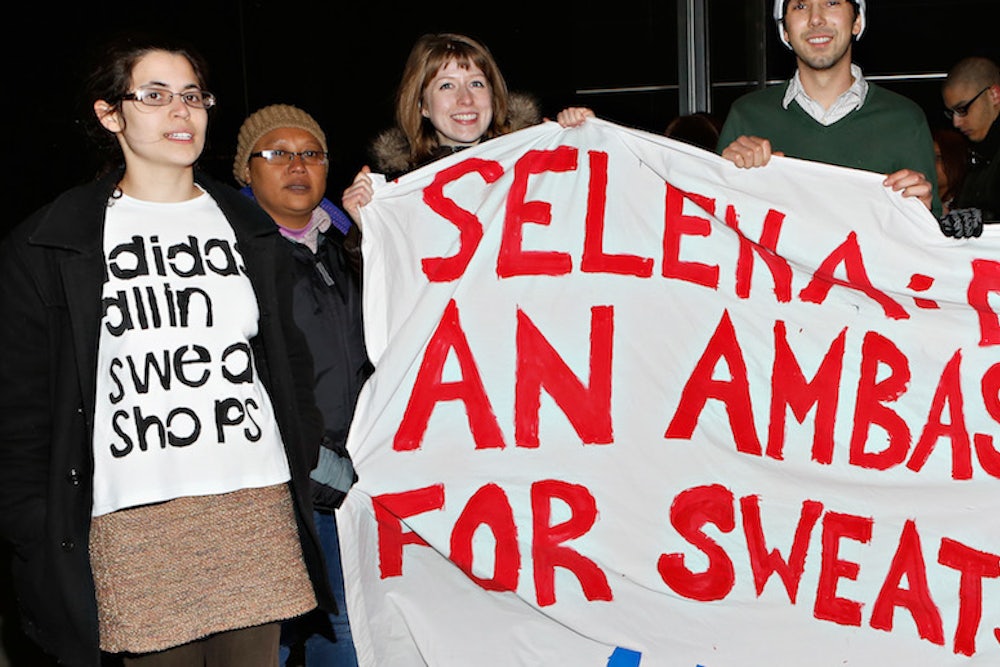This month, members of the American Studies Association (ASA) are voting on a resolution, which has already been endorsed unanimously by its National Council, that represents the left-wing tradition of “solidarity” in a most dubious form. It proposes “to honor the call of Palestinian civil society for a boycott of Israeli academic institutions.” The ASA Council does not claim its academic counterparts in Israel either helped create the policies of the Netanyahu government or even that most Israeli professors and students support them. The American leftists insist they mean only to target institutions that allegedly “are a party to Israeli state policies that violate human rights and negatively impact the working conditions of Palestinian scholars and students.”
The resolution is enrobed in the familiar rhetoric of self-righteousness. The ASA, it trumpets, “is committed to the pursuit of social justice, to the struggle against all forms of racism, including anti-Semitism, discrimination, and xenophobia, and to solidarity with aggrieved peoples in the United States and in the world.” Yet the text does not explain how the boycott might help aggrieved Palestinians, whether in or outside Israeli universities. Its only real purpose is to strike a moral stance at a time when strong opposition to the Israeli occupation has become the anti-imperialist cause of a large segment of the Western left. The resolution, admits Matthew Frye Jacobson, a past president of the group and a professor at Yale who endorses it, just “bars the ASA as an organization from entering into partnerships with Israeli institutions… Not that there’s a whole lot of that that has ever gone on anyway, so in that sense it’s symbolic.”
As many critics point out, to single out Israeli universities for violating human rights is transparently myopic. Chinese universities are also “a party” to the policies of their government, which has forcibly relocated many Tibetans from their homes and demonizes their religion—and fires professors who criticize the rule of the Communist Party. Russian universities promote and enforce the Putin government’s vile laws against gays and lesbians. But scholars of American history and culture routinely speak at academic institutions in both countries and invite their counterparts to visit theirs. By the same logic, one might call on ASA members who despise the national security state yet work for universities that get grants from or allow recruiting by the Defense Department, the CIA, or the NSA to boycott themselves.
Even if most of the 5,000 members of the American Studies Association endorse the boycott resolution, they are quite unlikely to change anyone’s mind or, for that matter, Israeli policy. Instead, the resolution has embroiled the ASA in an entirely predictable cyberstorm, as charges of “Jew-hating” and “Zionist apartheid” befoul the Internet. Supporters salute the “courage” of their comrades, while many academics who reject the boycott—including eight past presidents of the organization—may never take the ASA seriously again.
At the same time, a larger and more practical academic left has been organizing at hundreds of colleges to decrease economic inequality at home. With little notice outside their own campuses, the members of this populist left have been seeking, and sometimes winning small but meaningful improvements in the lives of workers and the poor.
Such groups as United Students Against Sweatshops (USAS) gather support for better pay and unions for adjunct professors, who are now half or more of the faculty members at many schools. They also advocate a living wage for all campus employees and take part in minimum wage campaigns in the cities where they live and study. In late November, an affiliate of USAS convinced the University of Pennsylvania to guarantee that all branded garments made in Bangladesh would be manufactured according to strict new safety standards. It took months of teach-ins, vigils, and class discussions to win that victory.
Nearly everywhere, young leftists and their faculty allies demand cuts in student debt for themselves and for future generations of students. We “are forced,” writes one activist group, “into low-wage jobs in order to immediately start making payments back to banks and lenders; instead of stimulating the economy by spending millions of dollars, students and graduates are pinching pennies to just try to keep up with the interest on their loans.” It’s a classic example of a self-interested demand that would also benefit society as a whole.
While there is nothing flashy about this kind of politics, its proponents are just as passionate about their cause as are the anti-Israel boycotters of the ASA. But, unlike the latter, who have bitterly divided their own small organization, they belong to a growing domestic movement that surfaced with Occupy and includes millions of unionists and left-wing Democrats. This surge made Elizabeth Warren a national figure and helped pull Obama to the left on issues like the minimum wage and led him to attack, in a recent speech, “this trend towards growing inequality” which “challenges the very essence of who we are as a people.”
Twenty years ago, the social theorist Michael Walzer made an argument that helps explain the difference between the populist left and the boycott left. The most useful thinkers, he wrote, are “connected critics.” They “challenge the leaders, the conventions, the ritual practices of a particular society ... in the name of values recognized and shared in that same society.” The ASA sympathizes with the just grievances of Palestinians by telling American humanists they should cut off all official contact with fellow humanists who, taken together, are more opposed to the occupation than are most Israelis. In contrast, pro-labor academics seek to apply the shared creed of “equal opportunity” to serious problems a majority of Americans know have existed for too long. One left talks about something it calls “American Studies”; the other actually practices it.
Michael Kazin’s most recent book is American Dreamers: How the Left Changed a Nation. He teaches at Georgetown University and is editor of Dissent.
